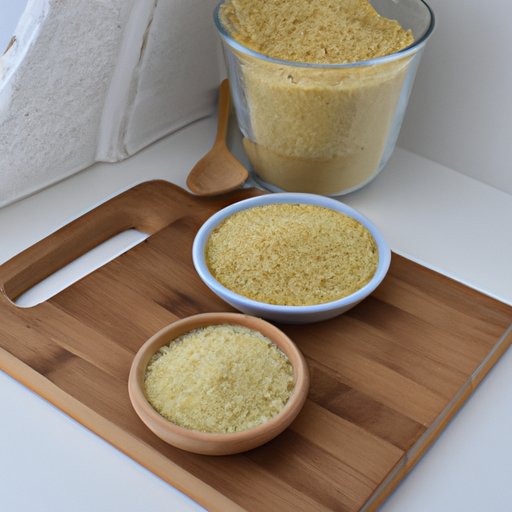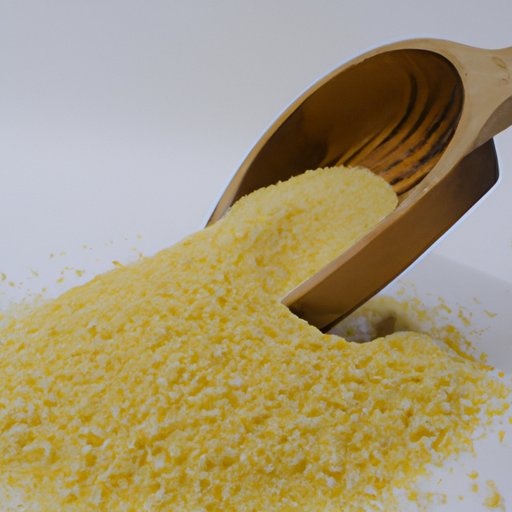Introduction
Couscous is a popular carbohydrate option enjoyed in many different cultures around the world. It is made from durum wheat and is often used as a substitute for rice or pasta. But is couscous healthy? This article takes a look at the nutritional benefits and potential health risks associated with eating couscous on a regular basis.

Exploring the Nutritional Benefits of Couscous
Couscous is a good source of carbohydrates, protein, and fiber. According to the United States Department of Agriculture (USDA), one cup of cooked couscous contains 175 calories, 5.6 grams of protein, 36.3 grams of carbohydrates, and 2.3 grams of dietary fiber. The same serving also contains small amounts of iron, calcium, and other essential vitamins and minerals.
Eating couscous may offer several health benefits. For example, the high fiber content of couscous helps to promote healthy digestion and can help to regulate blood sugar levels. Additionally, the protein content of couscous can help to keep you feeling full and satisfied for longer periods of time. As a result, it can be a helpful addition to any weight loss plan.
Is Couscous a Healthy Alternative?
Couscous can be a healthier alternative to some other popular carbohydrates. Compared to white rice, couscous has a lower glycemic index, which means it is digested more slowly and can help to prevent spikes in blood sugar levels. In terms of nutrition, couscous also contains more protein, fiber, and micronutrients than white rice.
When it comes to macronutrient content, couscous is fairly similar to other types of grains. One cup of cooked couscous contains 36 grams of carbohydrates, 5.6 grams of protein, and 2.3 grams of fiber. This makes it a better choice than many processed carbohydrates, such as white bread or crackers.
What Are the Healthiest Ways to Prepare and Eat Couscous?
Couscous is a versatile ingredient that can be prepared in a variety of ways. It can be boiled, steamed, or cooked in a pressure cooker. It can also be flavored with herbs, spices, and other healthy ingredients like vegetables, nuts, and dried fruit. Adding these additional ingredients can increase the nutrient content of your dish and make it more satisfying.
What Are the Potential Health Risks of Eating Couscous?
Although couscous is generally considered a healthy food, there are some potential health risks associated with eating it. For example, people with wheat allergies or sensitivities may need to avoid couscous as it is made from durum wheat. Additionally, it is possible to overeat couscous if you’re not careful, which can lead to weight gain.
The Pros and Cons of Eating Couscous Regularly
In general, there are both advantages and disadvantages to eating couscous regularly. On the plus side, couscous is a good source of essential vitamins and minerals, as well as protein and fiber. It is also a healthier alternative to some other popular carbohydrates, such as white rice and white bread. On the other hand, couscous may not be suitable for people with wheat allergies or sensitivities, and it is possible to overeat it if you are not careful.
Conclusion
In conclusion, couscous can be a healthy part of a balanced diet. It is a good source of essential vitamins and minerals, as well as protein and fiber. Additionally, it is a healthier alternative to some other popular carbohydrates, such as white rice and white bread. However, couscous may not be suitable for people with wheat allergies or sensitivities, and it is possible to overeat it if you are not careful. With these considerations in mind, couscous can be a nutritious and delicious addition to any meal.
(Note: Is this article not meeting your expectations? Do you have knowledge or insights to share? Unlock new opportunities and expand your reach by joining our authors team. Click Registration to join us and share your expertise with our readers.)
